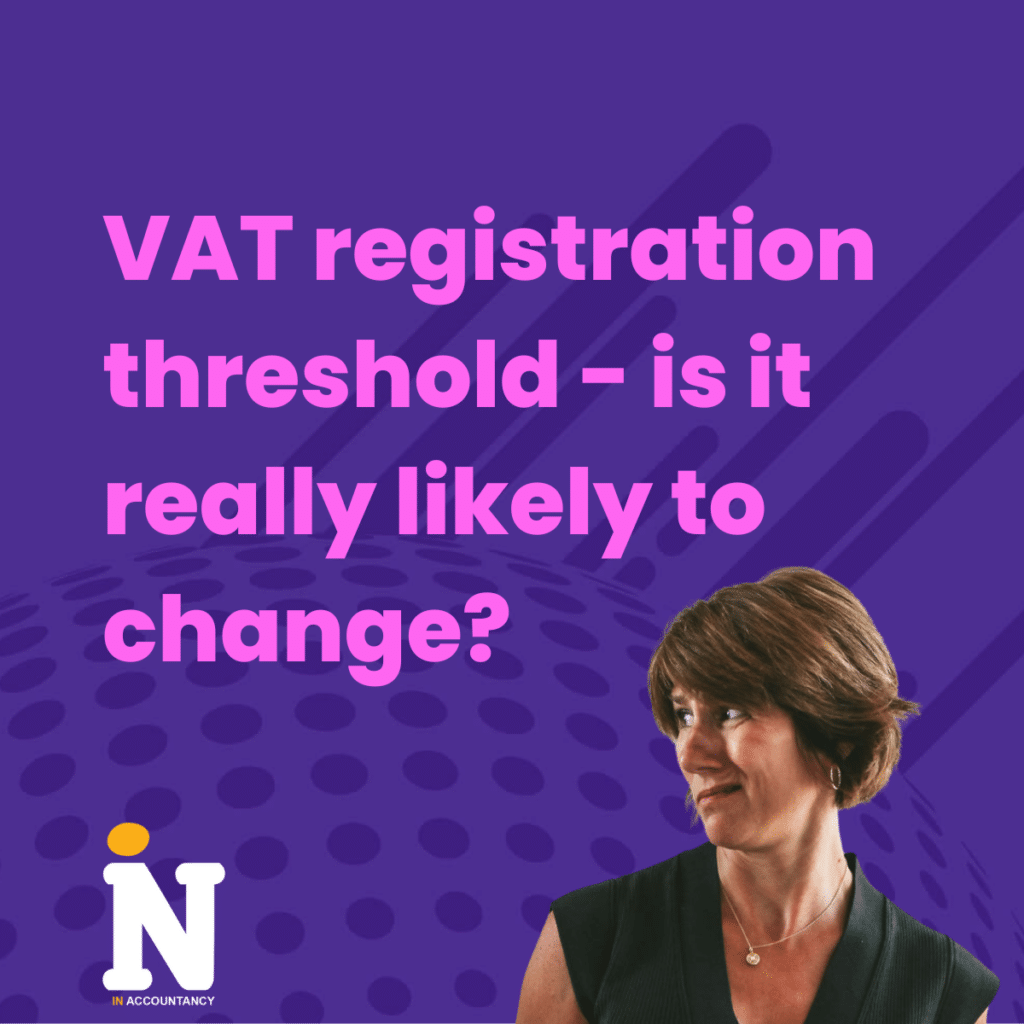💷 So, the FSB are in the process of lobbying HMRC to increase the VAT registration threshold to £100,000
It’s been at its current level of £85,000 since 2017, and in 2020 it was confirmed that the threshold would remain at £85k until 31st of March 2024
Which seemed a long time ago then!
📅 With that deadline fast approaching, there are all sorts of rumours flying around about what might actually happen to the VAT registration threshold come April 1.
So what are the options and implications? 🤔
❓The FSB could be right and the rate could increase to £100,000.
🤷🏽♀️The result will a few less people would have to pay VAT than they do currently and some might see that as a win all around
❓Or it could increase in line with current inflation, which at about 5% would only bring the rate up to around £89,000…
🤷🏽♀️With the cost of materials having increased so substantially in the last 3 to 4 years and the knock on impact on price increases, an inflationary increase really wouldn’t make much of a difference to anyone or anything
❓Or, there’s always the ‘do nothing’ approach – and the threshold could remain the same for another few years
🤷🏽♀️Just another example of fiscal drag where more and more small businesses will get caught and have to register for VAT
And what’s the problem with that? Well, many see VAT registration as a barrier to growth for our smaller, businesses, many of whom deal with consumers who are unable to claim back the VAT charged on goods or services. This means that a VAT registered business is 20% more expensive than it’s non-VAT registered counterpart, or they somehow have to absorb the VAT within their margin, which many try to do and is imho a recipe for disaster!!
❓Another school of thought is that the VAT registration threshold should be reduced rather than increased – perhaps right down to a nominal £10,000
🤷🏽♀️This would really level the playing field, meaning that every commercial business, with the exception of the smallest hobby businesses or ‘side hustles’ would be VAT registered pretty much from the get go. The argument being that this would remove the above mentioned barriers to growth, should encourage fair pricing for consumers, and reduce the opportunity for avoidance.
How on earth would a lower VAT threshold reduce the opportunity for avoidance? Many small businesses when faced with a looming VAT registration requirement get creative in thinking about how they can avoid this issue… Examples that spring to mind include:
-
-
restaurants separating food and drink, or eating in and taking away into separate businesses
-
trades people separating parts and labour into separate companies
-
or even different types of work or services
-
❓Maybe the solution is to reduce the threshold, but not quite so much – perhaps in line with the newly proposed MTD for ITSA (Making Tax Digital for self employed and landlords) threshold of £50,000 per annum for landlords and the self-employed which will be coming into effect in 2026 (originally planned for April 2023 and to apply to all landlord and the self employed with turnover (NOT PROFIT) greater than £10,000 per annum, but then delayed to April 2024 and later to 2026 with the level of turnover for those impacted increased to £50,000 per annum)
🤷🏽♀️This would have the benefit of at least simplifying the various different thresholds that need to be thought about for small businesses, especially the self-employed who have to consider already national insurance contributions, income tax and VAT as well as MTD coming just around the corner.
❓If anyone considers simplification to be even remotely relevant, then perhaps the VAT threshold should be reduced in line with the personal allowance, and the MTD for ITSA threshold the same…
🤷🏽♀️ Or should everything be aligned with the higher rate income tax threshold in that case?? Oooh, so many options…
❓Or maybe the threshold remains the same (or any combination of the above, but HMRC decide to reduce the VAT amount from 20% back to its pre-2011 rate of 17.5%, or even further to 15%, as it was in the early 90s.
🤷🏽♀️Obviously doing this is not without complexity in the short term and needs to be properly thought through in terms of timing – we saw how difficult to manage this was for particularly smaller hospitality businesses during the pandemic when the VAT rates kept changing and the software companies were unable to automatically update EPOS and other systems, so it became a huge manual job for those smaller businesses who simply didn’t have the cash or resources to cope
❓Alternatively, in their infinite wisdom, there is a definite possibility that the government will come up with a new calculation for determining at what level a business should register for VAT
🤷🏽♀️ No doubt it will be sold to us as simplification, but the reality is often more complex.
No doubt we will hear soon what the plans are, but for now, I’m interested in any thoughts on the above, or if you have any ideas I’ve not included…??
If you need help with this or any other accountancy or tax topic, please don’t hesitate to contact the IN Team who will be happy to help!







